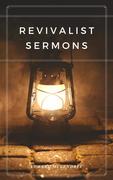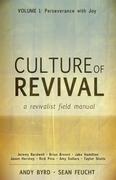58 Results for : revivalist
-

Guaranteed Pure: The Moody Bible Institute, Business, and the Making of Modern Evangelicalism , Hörbuch, Digital, ungekürzt, 737min
In the history of the Moody Bible Institute, founded in 1886 by shoe salesman turned revivalist Dwight Lyman Moody, Timothy Gloege finds an answer to why Christian ethics seem to go hand in hand with free-market capitalism. Taking the story back to the origins of modern fundamentalism as it arose within the social and cultural context of the Gilded Age and the Progressive Era, Gloege reveals longstanding connections between Chicago evangelicals and business and shows that the marriage between modern business and the so-called "old-time religion" developed symbiotically, forever altering the American religious landscape. By 1920 a shifting coalition of businessmen, midlevel bureaucrats, and ministers had forged a remarkably resilient form of conservative evangelicalism that deviated in key respects from traditional Protestantism and that embraced modern consumer-oriented ideas and strategies. At the bottom was evangelicalism's thoroughgoing individualism, demonstrated prominently in the privilege it gave to a personal relationship with God as the essence of an authentic faith. This individualism aligned with key developments within capitalism and facilitated a remarkable confluence of business and religious ideas resistant to the influence of Darwinian science's basic orientation toward aggregated populations conditioned by nature or nurture. For these evangelicals, to challenge capitalism was to challenge the foundations of evangelical orthodoxy. Guaranteed pure from both liberal theology and populist literalism, this was a new form of old-time religion not simply compatible with modern consumer capitalism but uniquely dependent on it. ungekürzt. Language: English. Narrator: Jim Manchester. Audio sample: https://samples.audible.de/bk/blak/007546/bk_blak_007546_sample.mp3. Digital audiobook in aax.- Shop: Audible
- Price: 9.95 EUR excl. shipping
-

The Twelve Tribes of Hattie , Hörbuch, Digital, ungekürzt, 616min
“The opening pages of Ayana's debut took my breath away. I can't remember when I read anything that moved me quite this way, besides the work of Toni Morrison.”Oprah Winfrey.Fifteen years old and blazing with the hope of a better life, Hattie Shepherd fled the horror of the American South on a dawn train bound for Philadelphia. Hattie’s is a tale of strength, of resilience and heartbreak that spans six decades. Her American dream is shattered time and again: a husband who lies and cheats and nine children raised in a cramped little house that was only ever supposed to be temporary. She keeps the children alive with sheer will and not an ounce of the affection they crave. She knows they don’t think her a kind woman — but how could they understand that all the love she had was used up in feeding them and clothing them. How do you prepare your children for a world you know is cruel?The lives of this unforgettable family form a searing portrait of 20th century America. From the revivalist tents of Alabama to Vietnam, to the black middle-class enclave in the heart of the city, to a filthy bar in the ghetto, The Twelve Tribes of Hattie is an extraordinary, distinctive novel about the guilt, sacrifice, responsibility and heartbreak that are an intrinsic part of ferocious love. ungekürzt. Language: English. Narrator: Adenrele Ojo, Bahni Turpin, Adam Lazarre-White. Audio sample: https://samples.audible.de/bk/rhuk/001442/bk_rhuk_001442_sample.mp3. Digital audiobook in aax.- Shop: Audible
- Price: 9.95 EUR excl. shipping
-

The Evangelicals: The Struggle to Shape America , Hörbuch, Digital, ungekürzt, 1550min
Longlisted for the National Book Award for Nonfiction This groundbreaking book from Pulitzer Prize-winning historian Frances FitzGerald is the first to tell the powerful, dramatic story of the Evangelical movement in America - from the Puritan era to the 2016 presidential election. The evangelical movement began in the revivals of the 18th and 19th centuries, known in America as the Great Awakenings. A populist rebellion against the established churches, it became the dominant religious force in the country. During the 19th century, white evangelicals split apart dramatically, first North versus South and then, at the end of the century, modernist versus fundamentalist. After World War II, Billy Graham, the revivalist preacher, attracted enormous crowds and tried to gather all Protestants under his big tent, but the civil rights movement and the social revolution of the '60s drove them apart again. By the 1980s, Jerry Falwell and other Southern televangelists, such as Pat Robertson, had formed the Christian right. Protesting abortion and gay rights, they led the South into the Republican Party, and for 35 years they were the sole voice of evangelicals to be heard nationally. Eventually a younger generation of leaders protested the Christian right's close ties with the Republican Party and proposed a broader agenda of issues, such as climate change, gender equality, and immigration reform. Evangelicals have, in many ways, defined the nation. They have shaped our culture and our politics. Frances FitzGerald's narrative of this distinctively American movement is a major work of history, piecing together the centuries-long story for the first time. Evangelicals now constitute 25 percent of the American population, but they are no longer monolithic in their politics. They range from Tea Party supporters to social reformers. Still, with the decline of religious faith generally, FitzGerald suggests that evangelical churches must em ungekürzt. Language: English. Narrator: Jacques Roy. Audio sample: https://samples.audible.de/bk/sans/008147/bk_sans_008147_sample.mp3. Digital audiobook in aax.- Shop: Audible
- Price: 9.95 EUR excl. shipping
-

Lincoln's Last Trial: The Murder Case That Propelled Him to the Presidency , Hörbuch, Digital, ungekürzt, 580min
The true story of Abraham Lincoln’s last murder trial, a case in which he had a deep personal involvement - and which played out in the nation’s newspapers as he began his presidential campaignAt the end of the summer of 1859, 22-year-old Peachy Quinn Harrison went on trial for murder in Springfield, Illinois. Abraham Lincoln, who had been involved in more than 3,000 cases - including more than 25 murder trials - during his two decades-long career, was hired to defend him. This was to be his last great case as a lawyer.What normally would have been a local case took on momentous meaning. Lincoln’s debates with Senator Stephen Douglas the previous fall had gained him a national following, transforming the little-known, self-taught lawyer into a respected politician. He was being urged to make a dark-horse run for the presidency in 1860. Taking this case involved great risk. His reputation was untarnished, but should he lose this trial, should Harrison be convicted of murder, the spotlight now focused so brightly on him might be dimmed. He had won his most recent murder trial with a daring and dramatic maneuver that had become a local legend, but another had ended with his client dangling from the end of a rope.The case posed painful personal challenges for Lincoln. The murder victim had trained for the law in his office, and Lincoln had been his friend and his mentor. His accused killer, the young man Lincoln would defend, was the son of a close friend and loyal supporter. And to win this trial he would have to form an unholy allegiance with a longtime enemy, a revivalist preacher he had twice run against for political office - and who had bitterly slandered Lincoln as an “infidel...too lacking in faith” to be elected.Lincoln’s Last Trial captures the presidential hopeful’s dramatic courtroom confrontations in vivid detail as he fights for his client - but also for his own blossoming political future. It is a moment in his ungekürzt. Language: English. Narrator: Adam Verner, Dan Abrams. Audio sample: https://samples.audible.de/bk/harp/007188/bk_harp_007188_sample.mp3. Digital audiobook in aax.- Shop: Audible
- Price: 9.95 EUR excl. shipping
-

The Future of Capitalism
*FEATURED IN BILL GATES'S 2019 SUMMER READING RECOMMENDATIONS* 'This is a beautifully written and important book. Read it' Martin Wolf, Financial TimesFrom world-renowned economist Paul Collier, a candid diagnosis of the failures of capitalism and a pragmatic and realistic vision for how we can repair itDeep new rifts are tearing apart the fabric of Britain and other Western societies: thriving cities versus the provinces, the highly skilled elite versus the less educated, wealthy versus developing countries. As these divides deepen, we have lost the sense of ethical obligation to others that was crucial to the rise of post-war social democracy. So far these rifts have been answered only by the revivalist ideologies of populism and socialism, leading to the seismic upheavals of Trump, Brexit and the return of the far right in Germany. We have heard many critiques of capitalism but no one has laid out a realistic way to fix it, until now. In a passionate and polemical book, celebrated economist Paul Collier outlines brilliantly original and ethical ways of healing these rifts - economic, social and cultural - with the cool head of pragmatism, rather than the fervour of ideological revivalism. He reveals how he has personally lived across these three divides, moving from working-class Sheffield to hyper-competitive Oxford, and working between Britain and Africa, and acknowledges some of the failings of his profession. Drawing on his own solutions as well as ideas from some of the world's most distinguished social scientists, he shows us how to save capitalism from itself - and free ourselves from the intellectual baggage of the 20th century.These times are in desperate need of Paul Collier's insights. The Future of Capitalism restores common sense to our views of morality, as it also describes their critical role in what makes families, organizations, and nations work. It is the most revolutionary work of social science since Keynes. Let's hope it will also be the most influential - George Akerlof, Nobel Laureate in Economics, 2001 In this bold work of intellectual trespass, Paul Collier, a distinguished economist, ventures onto the terrain of ethics to explain what's gone wrong with capitalism, and how to fix it. To heal the divide between metropolitan elites and the left-behind, he argues, we need to rediscover an ethic of belonging, patriotism, and reciprocity. Offering inventive solutions to our current impasse, Collier shows how economics at its best is inseparable from moral and political philosophy' - Michael Sandel, author of What Money Can't Buy and JusticeFor thirty years, the centre left of politics has been searching for a narrative that makes sense of the market economy. This book provides it - John Kay, Fellow of St John's College, Oxford and the author of Obliquity and Other People's Money For well-to-do metropolitans, capitalism is the gift that goes on giving. For others, capitalism is not working. Paul Collier deploys passion, pragmatism and good economics in equal measure to chart an alternative to the divisions tearing apart so many western countries. -Mervyn King, former Governor of the Bank of England- Shop: buecher
- Price: 9.99 EUR excl. shipping
-

-

Working Stiff
Working Stiff - A Revivalist Novel: ab 3.49 €- Shop: ebook.de
- Price: 3.49 EUR excl. shipping
-

Buddhist Revivalist Movements
Buddhist Revivalist Movements - Comparing Zen Buddhism and the Thai Forest Movement. 1st ed. 2016: ab 85.49 €- Shop: ebook.de
- Price: 85.49 EUR excl. shipping
-

-

Culture of Revival: A Revivalist Field Manual
Culture of Revival: A Revivalist Field Manual - Volume 1: Perseverance with Joy: ab 20.49 €- Shop: ebook.de
- Price: 20.49 EUR excl. shipping